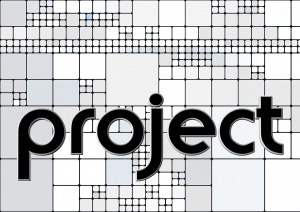Introduction to project management/IPM101/Describing project management/PMBOK
The Project Management Body of Knowledge is a set of standard terminology and guidelines (a body of knowledge) for project management. The body of knowledge evolves over time and is presented in A Guide to the Project Management Body of Knowledge (the Guide to the PMBOK or the Guide), a book whose fifth edition came out in 2013. The Guide is a document resulting from work overseen by the Project Management Institute (PMI), which offers the CAPM and PMP certifications.
Much of PMBOK is unique to project management e.g. critical path method and work breakdown structure (WBS). The PMBOK also overlaps with general management which both include planning, organising, staffing, executing and controlling the operations of an organisation. Other management disciplines which overlap include financial forecasting, organisational behaviour, management science, budgeting and other planning methods.
History
Earlier versions of the PMBOK were recognized as standards by the American National Standards Institute (ANSI) which assigns standards in the United States (ANSI/PMI 99-001-2008) and the Institute of Electrical and Electronics Engineers (IEEE 1490-2011).[1]
The evolution of the PMBOK is reflected in editions of the Guide. The Guide was first published by the Project Management Institute (PMI) in 1996. That document was to some extent based on earlier work that began with a white paper published in 1983 called the "Ethics, Standards, and Accreditation Committee Final Report." The second edition was published in 2000.[2]
In 2004, the PMBOK Guide — Third Edition was published with major changes from the previous editions. The Fourth edition was published in 2008. The latest English-language PMBOK Guide — Fifth Edition was released in 2013.
A "Sixth Edition" is scheduled for release in Q1 2017.[3]
Purpose
The PMBOK, as described in the Guide, is intended to be a "subset of the project management body of knowledge that is generally recognized as a good practice. 'Generally recognized' means the knowledge and practices described are applicable to most projects most of the time and there is a consensus about their value and usefulness. 'Good practice' means there is a general agreement that the application of the knowledge, skills, tools, and techniques can enhance the chance of success over many projects."[4] This means that the "latest" project management trends, often promoted by consultants, are normally not part of PMBOK.
The PMBOK Guide is also used as a support to prepare the certifications offered by the PMI, such as the CAPM and PMP.
Source Wikipedia
Definition
- Project management body of knowledge (PMBOK)
- The sum of knowledge within the profession of project management that is standardized by ISO. [5]
- ↑ IEEE (2011), IEEE Guide--Adoption of the Project Management Institute (PMI(R)) Standard A Guide to the Project Management Body of Knowledge (PMBOK(R) Guide)--Fourth Edition, http://ieeexplore.ieee.org/servlet/opac?punumber=6086683
- ↑ A Guide to the Project Management Body of Knowledge, copyright page, edition 2 ISBN 1-880410-12-5, and edition 3 2004 ISBN 978-1-930699-45-8, and edition 4 2008 ISBN 1-933890-51-7
- ↑ Project Management Institute, retrieved 8 January 2016
- ↑ PMI (2012), A Guide to the Project Management Body of Knowledge, 5th Ed.
- ↑ CNX
